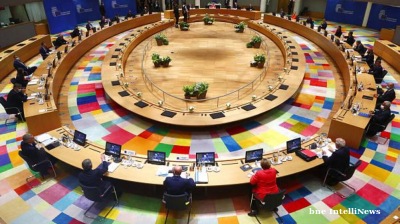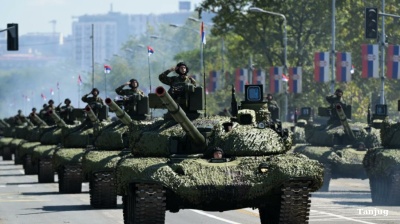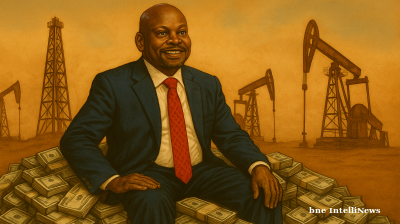El Salvador's legislature has approved constitutional reforms that will allow President Nayib Bukele to seek indefinite re-election, marking the latest step in what critics describe as the Central American nation's slide towards autocracy.
The National Assembly, dominated by Bukele's Nuevas Ideas party, voted 57-3 on July 31 night to abolish presidential term limits and extend the presidential mandate from five to six years. The reforms were approved and ratified in rapid succession during two plenary sessions lasting less than two hours.
The changes also axe the requirement for a second round of voting in presidential elections and synchronise presidential contests with legislative and municipal polls. Bukele's current term, which was due to end in 2029, will now conclude in 2027, allowing him to seek a longer mandate two years earlier than scheduled.
"All of them have had the possibility of reelection through popular vote, the only exception until now has been the presidency," said Ana Figueroa, the Nuevas Ideas lawmaker who introduced the reforms, as quoted by AP.
The move has drawn sharp condemnation from human rights organisations and opposition politicians. "This is an effort to establish a dictatorship in El Salvador," said Juan Pappier, deputy director for the Americas at Human Rights Watch. "He's very clearly following the path of … leaders who use their popularity to concentrate power to undermine the rule of the law and eventually to establish a dictatorship."
Opposition lawmaker Marcela Villatoro held up a sign reading "Democracy died today" during the session.
The 44-year-old self-styled “world's coolest dictator" has enjoyed broad popular support since taking office in 2019, largely due to his successful crackdown on the country's violent street gangs. Bukele’s heavy-handed security policies have reduced violence to historic lows in what was once one of the most dangerous countries in the Western Hemisphere.
However, the campaign has resulted in the detention of approximately 88,000 people on gang-related charges under an ongoing state of emergency that suspends constitutional rights. Rights groups say thousands have been detained arbitrarily, with more than 400 dying in custody.
Bukele won re-election in February 2024 with 85% of the vote, despite constitutional provisions that previously barred consecutive presidential terms. This was made possible after his party purged the Supreme Court in 2021 and installed loyalist judges who reinterpreted the constitution to allow his candidacy.
The reforms closely mirror tactics employed by other authoritarian Latin American leaders who have increasingly consolidated power, observers note. "Bukele's party is pushing for an express constitutional reform to allow indefinite presidential reelection," said Juanita Goebertus, director of the Americas Division at Human Rights Watch, in a post on X. "They're following the same path as Venezuela. It starts with a leader who uses his popularity to concentrate power, and ends in dictatorship."
The constitutional changes come amid a broader crackdown on dissent. In recent months, Bukele's government has arrested prominent critics, including human rights defenders and lawyers who have exposed alleged government corruption. The pressure has driven scores of journalists and humanitarian workers out of the country, with human rights group Cristosal announcing in July that it was relocating its operations elsewhere in Central America due to security concerns.
Bukele has positioned himself as a close ally of US President Donald Trump, offering to accept deportees from other countries into a newly constructed prison originally built for gang members – the infamous Cecot mega-jail.
Under emergency laws bypassing judicial review, El Salvador has inked a $6mn deal with the US and accepted over 200 illegal migrants, mostly Venezuelans and some Salvadorans with alleged links to criminal gangs. Venezuela repatriated its citizens in late July following a prisoner exchange deal between Trump and Venezuelan President Nicolas Maduro. After returning to Caracas, they reported widespread beatings, food and sleep deprivation, and psychological torture.
The bromance with the US president appears to have emboldened Bukele’s administration, which has shown little concern for international criticism.
"I don't care if they call me a dictator. I'd rather be called a dictator than see Salvadorans killed in the streets," he publicly stated in June.
The ease with which the reforms passed was enabled by earlier changes to legislative rules. According to the Washington Post, the National Assembly had previously altered procedures so that constitutional amendments could be voted on and ratified by the same group of lawmakers, rather than requiring a new legislature to approve changes after elections.
As fireworks erupted in San Salvador's main square following the vote, Assembly President Ernesto Castro thanked his colleagues for "making history". But for critics, the July 31 vote represents the clearest signal yet that El Salvador is abandoning its democratic foundations.
"They've taken off the masks... They're shameless," said opposition lawmaker Villatoro.
News

Afghanistan rejects Donald Trump's demands for Bagram air base return
Afghanistan firmly rejects Trump's demands for Bagram air base return, stating "not even an inch" of Afghan territory will be given to US despite threats.

UK, Australia and Canada recognise Palestinian state as Netanyahu threatens settlement expansion
UK, Australia and Canada formally recognise Palestinian state on September 21, with Netanyahu hinting at increased settlement expansion in response to international pressure.

EU finance ministers discuss Ukraine's Reparations Loan but no decision yet
EU finance ministers met in Copenhagen on September 20 to discuss tapping the cash pile of frozen Central Bank of Russia (CBR) money and using it to make a large Reparation Loans to Ukraine, but no final decision has been reached.

Serbia stages one of its largest military parades in decades
Fighter jets roared over the capital in a spectacle designed to showcase the power of the Serbian Armed Forces at a time of political tensions at home and increasing instability across the Western Balkans.



_1758207765.jpg)
